Archive
19 December 2018
NWO grants collaborative Cryo-microscopy development by Hoogenboom (ImPhys) and Jakobi (BN)
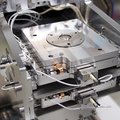
NWO has announced that it has decided to fund the 810 k€ collaborative project CRYO3BEAMS led by Jacob Hoogenboom (ImPhys). The project, which further involves Arjen Jakobi (BN) and industrial partners Delmic and Demcon-Kryoz, is funded within the High-Tech Systems and Materials (HTSM) Topsector call.
17 December 2018
First step towards potential alternative for antibiotics
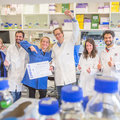
Thanks to alumni of the faculty of Applied Sciences and donors of Delft University Fund, Brouns and his team received €144.248 for the benefit of the bacteriophage research.
13 December 2018
Eight TU Delft researchers on Highly Cited Researchers list
Carivate’s list of Highly Cited Researchers has recently been published. On this list, the names of the most cited researchers in a certain field (or cross-field) can be found. This year, no less than eight researchers from our university have been included.
13 December 2018
Record number of TSC grants for Chemical Engineering students
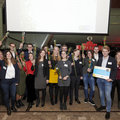
Six talented Chemical Engineering (CE) master students have won a Top Sector Chemical scholarship this year. The students are Elise Roelse (the Netherlands), Lale Yildiz (Turkey), Sebastian Tietjen (Germany), Emma Szoboszlai (Hungary), Abinaya Arunachalam (India) and Laura Donk (the Netherlands). Never before have so many CE students received such a grant.
05 December 2018
Researchers discover mechanism disrupting CRISPR-Cas9 gene editing
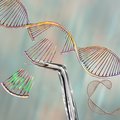
The discovery of CRISPR-Cas9 has made gene editing very easy. Unfortunately, the molecular tool has recently been found to be less precise than previously assumed. It can lead to unwanted mutations in a cell’s DNA. Researchers at Delft University of Technology have now identified a mechanism that causes such mutations when CRISPR-Cas9 is used incorrectly. This can cause dormant genes to become expressed, which is potentially very dangerous. The researchers have created a checklist based on their findings. Using this checklist will prevent the harmful mechanism from being activated and makes gene editing using CRISPR-Cas9 safer.
05 December 2018
New Professor of Nanomechanics aims for ‘nanoscale floating’
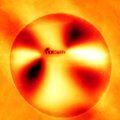
In the words of Professor Peter Steeneken, Head of the Dynamics of Micro and Nanosystems section at TU Delft, nanoengineering is required to bridge the gap between nanoscience and concrete nanomechanical applications.
30 November 2018
Gary Steele joins consortium to build new quantum device
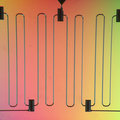
The research group of Prof. Gary Steele is planning to build a quantum device capable of making its own decisions. Steele’s group is part of an ambitious international consortium that has received 2.9 million euros in funding.
30 November 2018
Opening HollandPTC
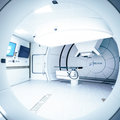
On Friday 30 November, the festive opening celebration of HollandPTC will take place in the Prinsenhof museum in Delft. Recently patients are being treated with proton therapy, a new form of radiotherapy against cancer for the Netherlands, in the outpatient centre HollandPTC located on the campus of the TU Delft. Parallel to these treatments, TU Delft is working together in HollandPTC with the LUMC and Erasmus MC medical centres on innovations in the care of cancer patients. Treatment, education and research go hand in hand to achieve better and responsible care.
30 November 2018
Probing quantum physics on a macroscopic scale
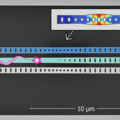
Why does quantum mechanics work so well for microscopic objects, yet macroscopic objects are described by ‘classical physics’? This question has bothered physicists since the development of quantum theory more than a 100 years ago. Researchers of Delft University of Technology and the University of Vienna have now devised a macroscopic system that exhibits entanglement between mechanical phonons and optical photons. They tested the entanglement using a Bell test, one of the most convincing and important tests to show a system behaves non-classically.
29 November 2018
Various prizes for AS students
It’s raining prizes in November. This month, students of study programmes of the Faculty of Applied Sciences received various awards. An overview.